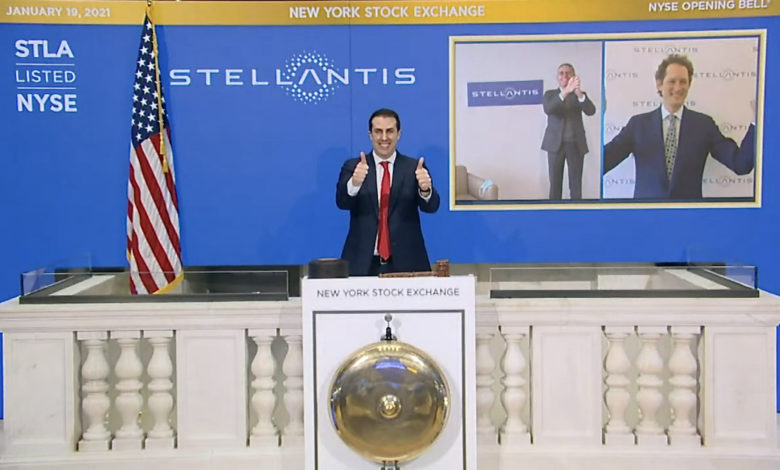
A remarkable event occurred on Jan. 4. Chrysler, for many years one of the “Big Three” U.S. automakers along with General Motors and Ford, ceased to exist as a corporation. Chrysler, which had already become Fiat-Chrysler after its partnership with Fiat of Italy several years ago, was taken over by PSA, the French maker of Peugeot, Citroen and Opel cars.
While the impact of this merger will not be felt immediately by the workers in the former Chrysler plants, who will continue producing their current vehicles for the new company, it will inevitably lead to job losses and restructuring.
The new corporation is called Stellantis. Only two members of the company’s board of directors are from the United States. The new corporation will be headquartered in the Netherlands.
Chrysler outsourced abroad, promoted ‘Buy American’ as a diversion
What makes this development especially noteworthy is that Chrysler was the corporation that ushered in the “Buy American” campaign in the 1980s. Chrysler, after entering bankruptcy in 1979, was the first of the Big Three U.S. auto companies to launch a massive restructuring based on automation, outsourcing of jobs and integrating worldwide production.
In 1979, there were approximately 100,000 hourly U.S. Chrysler workers, 165,000 Ford workers, and 511,000 General Motors workers. As of 2018, those numbers had declined to 47,000 Chrysler workers and 55,000 Ford workers. GM’s hourly U.S. workforce declined to 46,000 workers, though a significant portion of GM’s decline was due to the spinoff of its parts divisions.
Union leaders mirrored company’s racism, made concessions to restructuring
When the corporate restructuring began in 1979, the United Auto Workers leadership had no strategy to fight back against the attacks on workers’ jobs. Instead, they adopted a “Buy American” campaign, blaming “foreigners” — in particular Japanese workers — for taking “American” jobs.
The upshot of this strategy was that U.S. autoworkers were directed by the union leadership to cooperate with the bosses against “foreign competition.” This meant giving contract concessions, agreeing to two- and even three-tier wage scales, not challenging massive plant shutdowns when they occurred, and ultimately even giving up the “30 and out” pensions that had been a hallmark of the UAW.
It also meant a blatant appeal to racism. “Foreign-made” automobiles were banned in union parking lots. Union locals staged ceremonies where they would smash Japanese cars. And it resulted in racist attacks against Asian people, including the murder of a Chinese man, Vincent Chin, in Detroit.
Paving the way for Trump’s chauvinism
When we try to understand how a racist demagogue like Trump could appeal to white industrial workers, many of whom lost their jobs due to corporate restructuring, some blame should be placed on this backward approach adopted by the union leadership in lieu of presenting a program to challenge the bosses. Trump’s “Make America Great Again” is not a whole lot different than the union leadership’s “Buy American” campaigns.
The fact that Chrysler, the corporation that helped launched “Buy American” through its Trump-like pitchman Lee Iococca, has now been wholly taken over by a French corporation, shows what a nefarious ploy this “Buy American” strategy always was.
Bosses have no national loyalty, only concerned with profit
In the epoch of monopoly capitalism, the bosses owe no national allegiances. They are multinational corporations whose only concern is profit. They will shut plants and offices and move production anywhere in a minute in the pursuit of more billions to line their pockets. That was the case in 1979 just as it is today.
Promoting “Buy American” as a diversion from challenging capitalist restructuring is not just promoted by Trump or backward union leaders. It was a centerpiece of the Biden-Harris campaign, which published “The Biden Plan to Ensure the Future is ‘Made in All of America by All of American’s workers.’”
Biden’s ‘Buy American’ campaign continues diversion, encourages racism
And on Jan. 25, while workers still waited for their promised stimulus, Biden proclaimed his “Buy American” initiative. Bernie Sanders similarly echoes the reactionary “Buy American” line, one of the reasons he won over many of the same workers who had previously voted for Trump in Michigan.
Chrysler’s takeover by Peugeot to form the new multinational auto giant Stellantis is motivated by the auto companies preparing a whole new round of job eliminations and restructuring. The entire auto industry is moving toward electric vehicle production. Electric vehicle production requires 30 percent fewer workers than producing internal combustion vehicles. If the restructuring is not challenged, it will lead to further demands for givebacks and concessions.
The move to electric vehicles is certainly in the interest of all humanity, but the bosses should not be allowed to use this conversion to maximize their profits at the expense of the workers. Rank-and-file auto workers must take the lead in demanding that the workers get the benefits of the new technology as well as the community.
International workers’ solidarity needed to effectively fight bosses
It is time to revive demands for 30 hours work for 40 hours pay and guaranteed lifetime jobs, and to fight to bring back pensions that are fully paid after 30 years of labor regardless of age.
And it is time to promote international workers’ solidarity in the fight against the bosses, not a strategy that pits workers against each other based on geography.
When Biden offers the bosses billions of dollars to subsidize electric vehicles, as he has pledged to do, these demands must be made conditions of any federal subsidies. Green New Deal activists should join the workers in supporting demands that workers, not bosses, profit from the technology.
Activists must let Biden know that they will not sit back and allow a bailout like he helped engineer at GM and Chrysler in 2008. This bailout “saved” the companies and their profits while cutting jobs and wages for the workers, and led to the proliferation of gas-guzzling SUVs and trucks to fatten the bosses’ bottom line.






